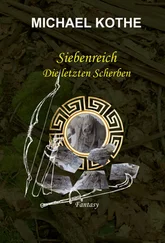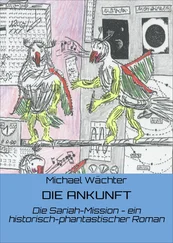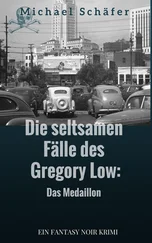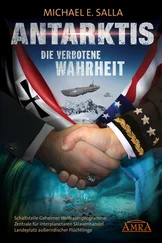The next day Vadim came to the hatch with a grin. He lowered down a bucket on some twine. In it was cabbage, fried beef, potatoes, aromatic as anything ever put before him. “You have saved me, my friend,” Vadim said.
Titus sat looking at the bucket but did not touch it.
“But I must tell you. Visser is not happy about the losing crewman. He said he was sure-footed. Seasoned. And that he does not believe in falling accidents. So, Titus, they are searching the ship. And it won’t be long before they see the holds.”
“I’ll entomb myself here,” Titus said. Sculpting an old word in the air with his tongue comforted him.
“Don’t be stupid. There is weeks of your shit down here. They’ll find your traces.”
Titus looked beside him. Blood from his nose and face from when the Panamanian had struck him had left clumps in the oats like cat litter. “I knew this would transpire,” he said, unable to believe Vadim couldn’t tell he was already dead.
“Come, Titus. I’ve found you a new place.”
A great weariness came over each of his muscles. “I need to wash,” Titus said with a sudden distaste for his hands, the blood that had been on them.
“No, no, no—” Vadim began.
“Either that or I ring Visser,” Titus interrupted.
Grumbling, Vadim led him to the lockers at the base of the wheelhouse. Titus stripped, set the shower as hot as it would go and kept his head down, water hammering his neck as he hissed every word he’d ever known into the steam. He put his clothes at his feet, letting his own steps and the runoff clean them. He shaved with a razor he found hanging from a screw in the scummy tile. After, he wrung his clothes over the drain and pulled them on wet before returning to the hatch. He lay down, the oats coating him like batter.
Back in the dark, finally clean, Titus turned his soothed mind toward the walks he used to take with her to find the blue and yellow prairie wildflowers that grew all along the tracks that snaked their way east to the elevator. Sown by seeds that the threshers inadvertently swept up along with the grain, the flowers were found all the way down the line in high summer. The thought of this set him weeping.
Vadim returned that evening and helped Titus climb up onto the deck. He threw a line and looped it over a lifeboat hanging from some rigging high above. “They’ve already searched these, so they should be safe. And here,” Vadim said, handing Titus a laundry sack filled with oats and three jars of clear water. “I found some more vessels,” he said quickly.
Titus took the line and shimmied up to the boat. He snapped away the vinyl cover and crawled beneath it. The bench seats of the boat made it so there was nowhere to lie flat, and the wind rattled the craft as though it was airborne. He shivered when night came, piling the oats in the driest corner and wrapping himself in the laundry bag, missing the muffled gloom of the hold, the warmth of his nest like the afterglow of a lover.
The next day, he discreetly opened the part of the cover that faced outward and bathed various parts of his body in a triangle of sunlight. He tossed a few oats to the seabirds that followed in the ship’s wind, listening to their gorgeous shrieks, until a crowd began to form around his hiding place and that was the end of that.
It was the following day that Titus sighted the green shoulder of land. He tried releasing the lifeboat, but the mechanism was padlocked. Hurriedly, he drank all the water and sealed air in the jars as tight as he could manage and tied them up with his money and boots in the laundry bag. He drew back the vinyl cover and jumped as far out from the ship as he could manage to clear the engines. He bobbed for hours in the high waves, clutching the jars, which weren’t enough to buoy him completely but lessened his labors.
When he emerged from the seawater onto a mucky rise he was met by black men on rafts preparing some cylindrical traps. After he’d finished vomiting from exhaustion, one of the men prodded his chest with a fishing rod, probably to see if he was a ghost. But Titus could find no handhold in the sounds they made, could make no order of their faces. He walked inland from the dock and followed a baking dirt road for hours until he reached a disorienting city. There he found a bank. He handed them the money from his wallet and the smiling woman handed back colorful bills in a wad so enormous he had to distribute them among the pockets of his trousers.
He bought half of a barbecued goat and some yellowish fruit chunks in a plastic bag and brought it to a public sitting area. As he ate, garbage burned in a wire incinerator nearby, and the smell pleased him. He rented a room in a squalid hotel he felt he deserved and walked for hours each day, finding the Panamanian’s face in the crowds, as well as his best friend’s, speaking out loud to himself, happy at the incomprehensive looks he received in return. After a week of wandering, he asked for directions to a port where he contracted on a ship carrying chemicals out of Liberia.
After that he signed with other boats. Years passed at sea, quick as a shudder. Aughinish. Hamburg. Latvia. Antwerp. Murmansk. Vancouver. Shanghai. Rotterdam. New Orleans. Nagoya. Amsterdam. Hay Point. After all his time on the water, both stowed away and now as crew, he attuned himself to loneliness, to the captivity of oceangoing, to a life spent between ports. Visions rarely troubled him. Though he still disliked the talking required with the other crew, minimal as it was, and frequently retreated to his cabin to read and whisper into his pillow.
But over the years, his whispering became harder to contain, and he managed to offend a Polish first officer and was let go. Sitting beside an American in a beachfront drinking establishment in Shanghai, just a long table under a bale of thatch, he overheard the man say he’d signed a contract on a bulker to the Great Lakes. Titus followed him to the wharf and signed his name.
He rode again through the locks, this time climbing them like a long staircase. But he learned from a crewmate that Thunder Bay got very little grain traffic these days. So he hopped off and caught freights back and forth across Canada, east and west, each time sailing through Thunder Bay, unable to locate the courage to jump off. In his new life he could pass days like a blink and months in an afternoon. He found he preferred rail travel to shipping. On trains he met every manner of low creature, tucked away in all the nooks and crannies that railcars accidentally provide. A man who injected grain alcohol into his veins with a hypodermic needle, who could attain pure, shambling drunkenness with a capful of cheap vodka. Another man who snorted brown powder from a baby food jar and slept twenty hours of twenty-four. People missing half their heads, half their hearts; people who’d stabbed their families, and who’d been stabbed — by their families and otherwise; people who’d been raped and had raped, not necessarily in that order. There existed a crude system of exchange between American and Canadian currency, cigarettes and jugs, the rates for which were maintained collectively in their heads. They passed around the ugliest money he ever laid eyes upon. Bills soaked in blood, urine, semen — animal and human. Money begged for, killed for, hidden and squandered and stolen a thousand times over. He never raised a finger toward any of them, because none was worth helping or hurting, and he received the same indifference in return.
Then one day while catching out of Steinbeck, Manitoba, he climbed onto a gondola car loaded with big packets of lumber that already sheltered a bedraggled man. “Room for two, fella,” the man said, and Titus tucked himself into the space beside him. Titus nodded but didn’t speak. Since he’d been riding trains, the whispering had worsened, and his words were further jumbling in his head, as though someone had taken a sledgehammer to the card catalogues in the library of his mind.
Читать дальше












